Academics
High School
9th Grade
| Ninth grade begins with a three day orientation trip designed to integrate the 30 (on average) freshmen rising from our middle school with the 30 or so who join us from other schools, public and private. This sets the stage for a year of transition, building community, and self-discovery. Through co-curricular programs like advisory, ninth grade academy, and the orientation trip, we aim to integrate students smoothly into the high school experience both academically and socially. Ninth graders build important relationships with teachers and learn how to advocate for themselves. LREI encourages students to develop a positive relationship to school by cultivating curiosity, exploration, and collaboration. As the year progresses, teachers are attuned to those moments when ninth graders will encounter “high school firsts,” including finals, term papers, navigating an open campus, interactions with older students and balancing busy curricular, co-curricular, and social lives. Peer leaders are a great support in this year-long process. Throughout the year, ninth graders develop the habits and language of inclusion, social justice, and leadership as they are invited to be full participants in the division. The ninth grade orientation trip, which takes place before classes begin, is a joyful introduction to LREI’s values. Students travel with their faculty advisors and senior peer leaders to Camp Ramapo for a three-day outdoor orientation. They build new friendships and learn about community norms through social time and team building activities that promote collaboration and creative problem-solving. Challenging tasks, such as the high ropes course, encourage students to take risks and support one another. This trip allows ninth graders to grow as individuals and as a group and to establish a strong foundation for entering the school year together. The peer leader program is another way the high school supports ninth graders during this time of transition. Seniors mentor small groups of ninth graders by leading parts of the orientation trip and then continue to have bi-weekly meetings with their groups throughout the year. They help the ninth graders make sense of the school culture and to address problems when necessary — whether they are having a disagreement with a friend or need help studying for a math quiz. The peer leader program encourages an informal web of cross-grade friendships that is central to our students’ sense of community. Courage is a value integral to the ninth grade program. For one, all ninth graders take a rotation of arts classes that includes dance, drama, music, studio art, filmmaking, and photography. The classes are designed to challenge both the inexperienced and the experienced student, as over the course of the year every student will step outside of their area of expertise. A student who has stage fright will write and perform a monologue, while another student who feels uncomfortable with a blank canvas will create a self portrait. Students who have never taken a dance class will choreograph a dance with their peers based on childhood games. At the end of each term, all students participate in a ninth grade arts share where they celebrate their courage as individuals and as a class. In chemistry, ninth graders demonstrate courage through “board meetings.” After conducting an experiment and making a diagram of what they think is happening when, for example, they set steel wool on fire, students debate what is occurring at the particle level and present their findings to the class using white boards. As if they are scientists making a new discovery, students question each other’s assumptions, defend their thinking, and sometimes -- most thrillingly -- change their minds. And that takes courage. Deploying knowledge and skills in meaningful ways is one of the goals of the ninth grade curriculum. A history unit on World War I requires students to internalize the content they have learned by acting out a scenario in which they negotiate the Treaty of Versailles. They must think about how they could both advocate for their country and prevent the conditions that caused World War II. They marshal new knowledge, access empathy, and strategize collaboratively as they re-imagine history. Similar critical thinking skills are marshaled in the ninth grade math program, which is the gateway to a curriculum driven by student-led discovery. In groups, students explore various possible paths to a solution. Through this process, they learn to verify their thinking and develop critical judgement about what is right or wrong. When students ask “Am I right?”, teachers encourage them to return to their groups to derive the answer. As a result, students discover math facts through direct experience. | 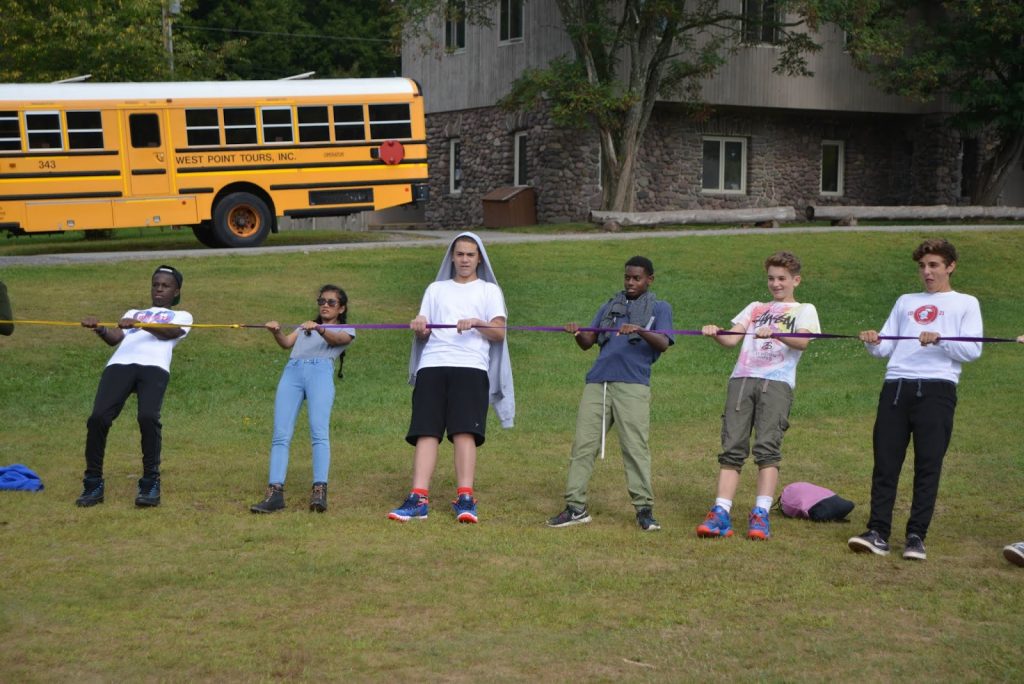 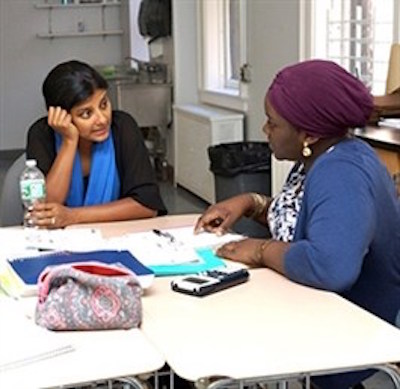 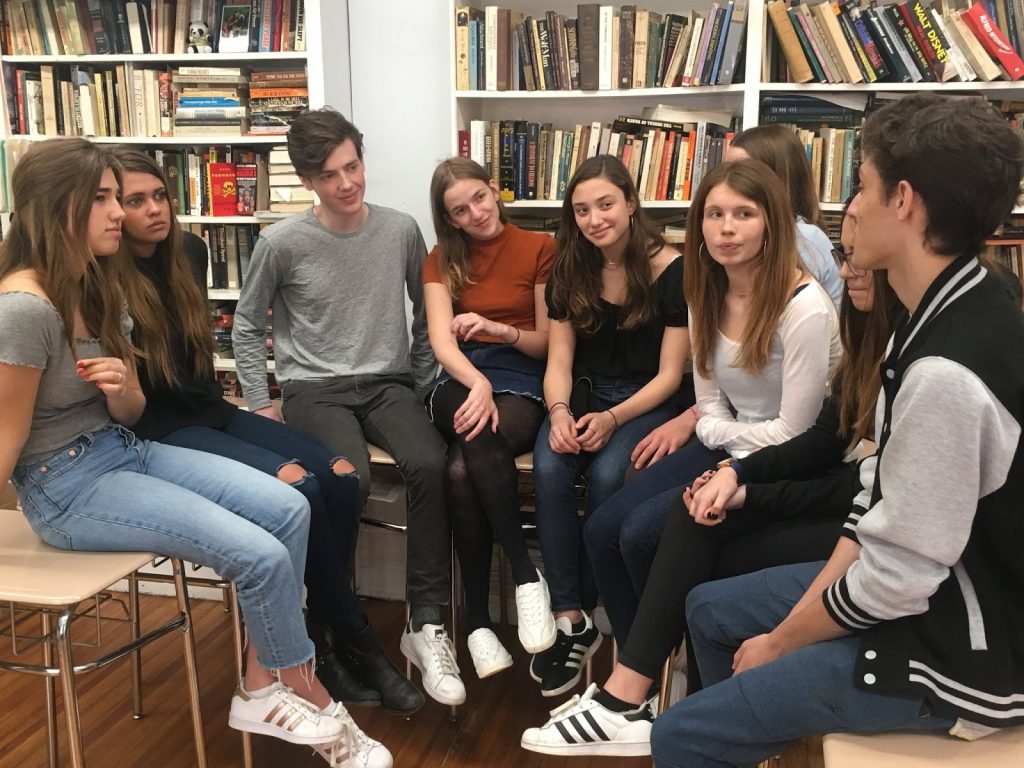 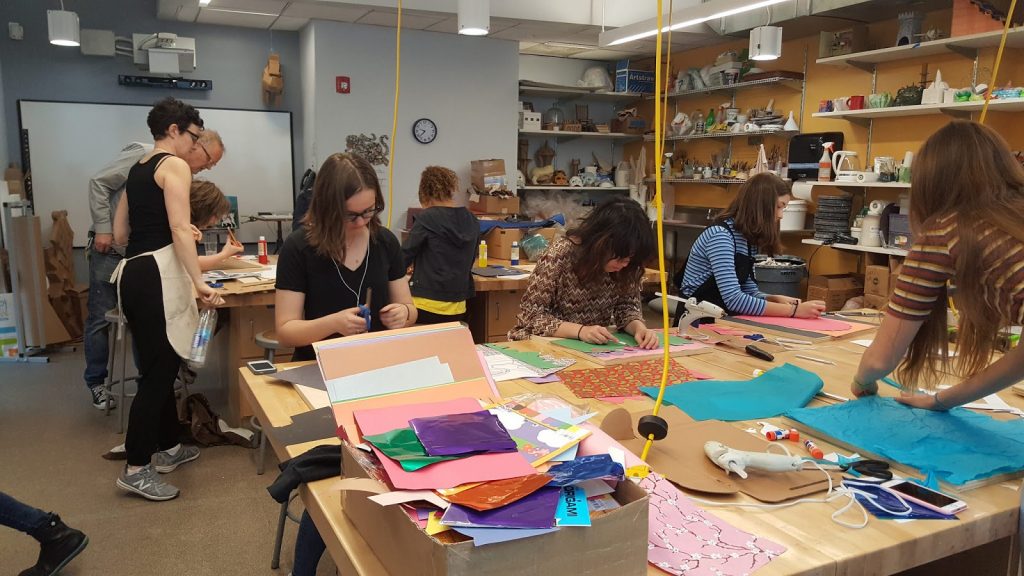 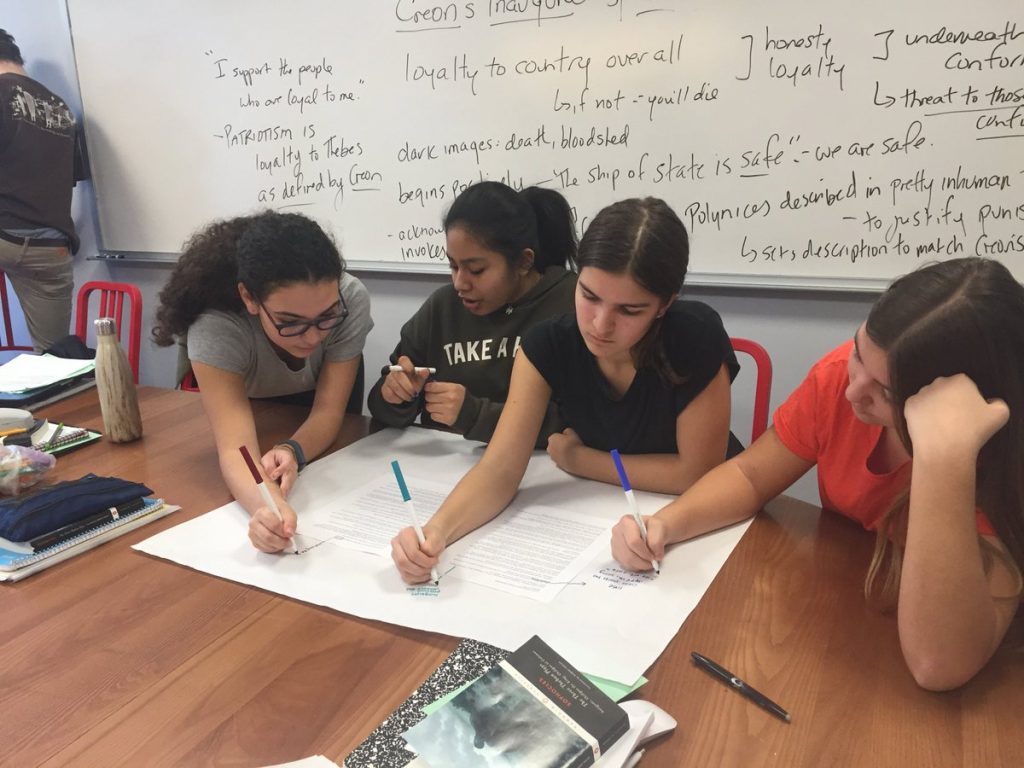 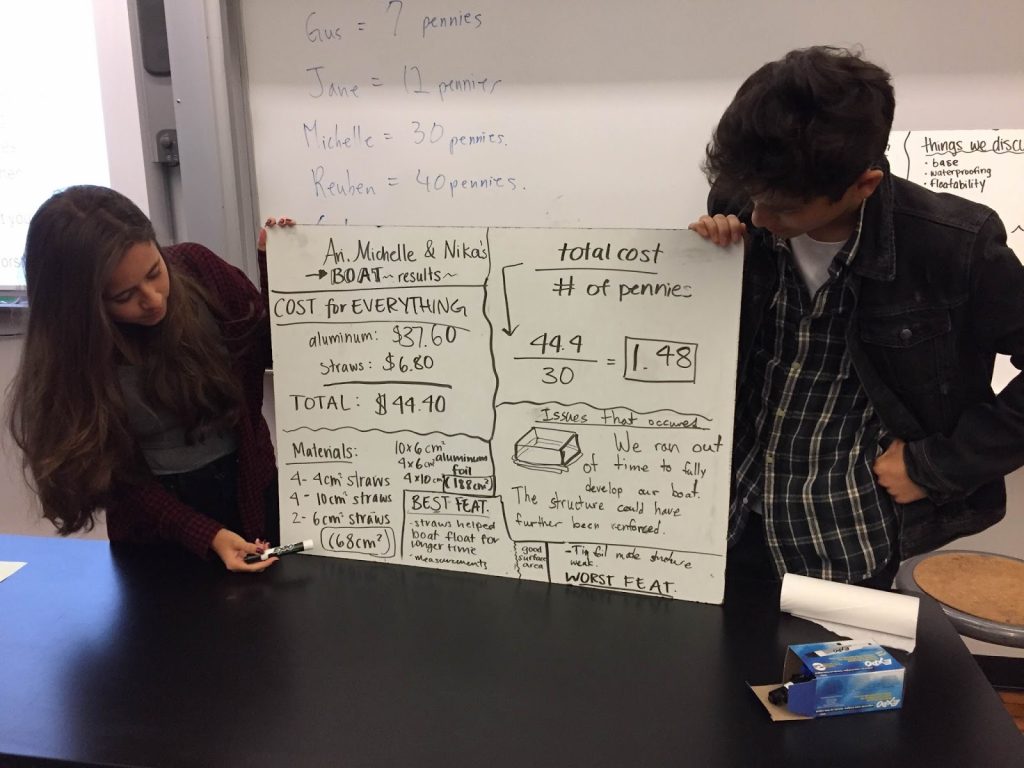 |

Little Red School House
and Elisabeth Irwin High School
and Elisabeth Irwin High School
List of 3 items.
-
Lower/Middle School
-
High School
-
Thompson St. Athletic Center






